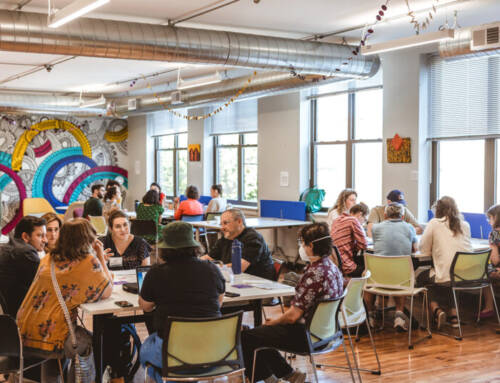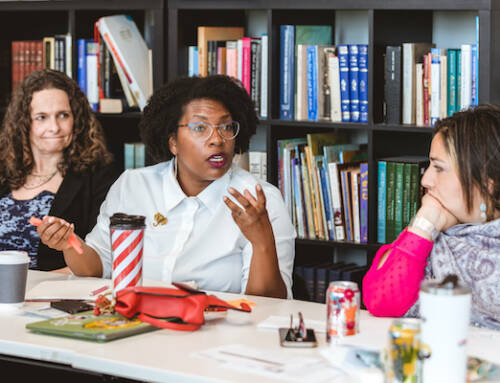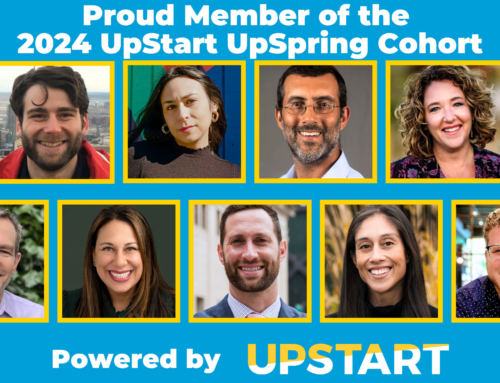January 6, 2016
By Maya Bernstein and Bryna Leider
in eJewish Philanthropy

The brainchild of The Jewish Education Project and Upstart, and generously funded by UJA-Federation of New York, the Day School Collaboration Network (DSCN) sought to increase empathy, creativity, experimentation, collaboration, and innovation so that schools might become more agile learning organizations.
DSCN was designed as a multi-year cohort, in which participants would actively engage with the principles of Design Thinking through in-person professional learning experiences and guided practice in their respective schools. Almost immediately, this model proved effective in quickly moving participants from a theoretical understanding of Design Thinking into entirely new ways of operating in their professional and personal lives. The shift was so apparent that it inspired the Stanford d.school – the home of Design Thinking – to create a nearly identical programwww.dhometeam.stanford.edu for schools in the San Francisco Bay Area.
At the outset, the question of impact of Design Thinking on specific, school-based challenges was not a jump; much experimentation had already taken place. What was less proven was whether the process could be expanded to become a tool for whole school change. As the original designer of DSCN’s content, Maya Bernstein posited that participants would need help navigating the human dynamics, politics, and cultural fall-out of leading change and advocated for the inclusion of Adaptive Leadership in the program. Pioneered in our work at DSCN, the insights gained from the combination of the two theories have just been published in a journal article in the Stanford Social Innovation Review written by Maya Bernstein and Marty Linsky.
We have come to view the combination of Design Thinking and Adaptive Leadership as a shortcut towards whole school change, but it is not magic. Change is still slow (which is why The Jewish Education Project decided to continue the program after the funding cycle ended), but we have witnessed exquisite glimpses of what is possible. For example, the team from Magen David Yeshivah taught the design process to teachers, administrators, students and parents around the question: “What might Magen David look like in five years?” By the end of the year, every elementary staff member, six classes, and 90 parents had learned Design Thinking while becoming participatory members of the visioning process. Subsequently, the team took all of the insights and ideas gathered and again used the design cycle to determine the first action steps towards realizing the vision. View Magen David’s story as well as other stories of personal learning and shifts in institutional cultures here.
Learn more about the prototypes that the teams created.
See Luria Academy’s protocol for Teacher Rounds.
See a description of Lamplighters Yeshivah’s numerous projects.
Maya Bernstein is an Associate at UpStart, which partners with the Jewish community’s boldest leaders to expand the picture of how Jews find meaning and how we come together.
Bryna Leider is the Director of the Day School Collaboration Network at The Jewish Education Project
Our purpose is to enable entrepreneurs to bring bold Jewish ideas to light. We help them reach Up to people in new ways that are meaningful, more inclusive, and create a brighter future for our Jewish community and the world we share.




